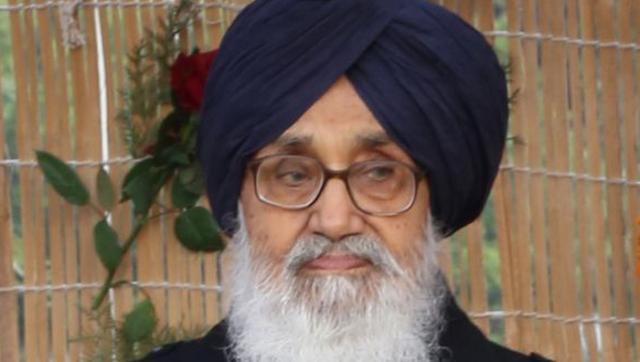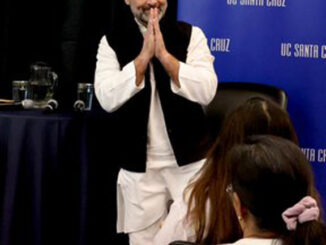
MUMBAI (TIP): And now another scam. This time it is foodgrain scam. And it is the Punjab government, a partner of BJP in Punjab and at the center which is involved in a massive scam which may cause a splotch of red ink on bank balance sheets. The scam is in the form of disappearing food stocks in Punjab godowns which threatens to burn a Rs 12,000-crore hole in the books of a cartel of 30 banks and embarrass the Parkash Singh Badal administration, reports say.
The Reserve Bank of India (RBI) has ordered all banks with exposure to the Punjab government’s food borrowing program to provide for potential losses after discovering that food grain supposed to have been bought with bank funds has vanished from godowns.
At least four people familiar with the matter said RBI’s directive has alarmed banks who now have to provide at least 15% of the loans, or a total of Rs 2,250 crore, in March and June quarters.
State Bank of India Chairperson Arundhati Bhattacharya said, April 18, the RBI has asked the top lender to make provisions for possible losses on account of the unfolding foodgrain scam in Punjab.
“Yes,” Bhattacharya told reporters when asked whether the regulator has asked the government-run bank to make provisions in the case. However, she did not elaborate.
Asked about the banks’ total exposure to the Punjab government, she said “I don’t have the exact numbers. We need to get those.”
Earlier in the day, Minister of State for Finance Jayant Sinha said the government is working to resolve the issue.
“We are working with the regulators as well as the banks and various other government agencies to ensure the matter with respect to the food stocks in Punjab is satisfactorily resolved,” Sinha told reporters.
Normally, all state government borrowings are sovereign and banks have been telling the regulator that there is no need to provide for potential losses. But the regulator has insisted on this move, underlining once again RBI Governor Raghuram Rajan’s take-no-prisoners approach when it comes to treating bad loans.
“RBI does not agree,” one banker said. “It is not (convinced) about the recoverability of the receivables. Hence, it has asked banks to make provisions.”
The development, a bolt from the blue for the banking system, is also a huge embarrassment for the Badal government whose popularity is under pressure from a resurgent Aam Aadmi Party (AAP) and Congress. The state goes to polls in 2017.
The Akali Dal, a partner in the ruling NDA at the Centre, runs the state in alliance with BJP. The state government is believed to have told banks and RBI that there is no deficit and it would be able to repay the loans. An anguished banker told ET that his bank’s entire profit may be wiped out by the provisioning. “All the parties involved, state government, Centre and RBI, were aware of the deficiency — the stock versus the loan amount, but it is always the banks which have to pay the price. Why can’t the government set up an enquiry about the missing stock?”
Although the issue of ‘deficient stocks’ in Punjab’s granaries have been discussed for months, bankers did not think of provisioning as the loans were considered ‘zero-risk’ since they went into the state government’s books.
“There has been an issue of reconciliation between the Food Corporation of India (FCI) and Punjab state government, and till the matter gets resolved, RBI has told us to make 15% provision on the food credit given to Punjab government,” said a banker who preferred anonymity.
A mail sent to the Reserve Bank of India on April 20 evening did not elicit response. The central bank and commercial banks were shut for a national holiday on Thursday, April 21, When contacted over phone, FCI Chairman Yogendra Tripathi declined comment saying the Punjab government officials ‘will give a better clarity’.
The issue is being looked at, said an official at the state food, civil supplies and consumer affairs department who did not want to be identified. “There has been no siphoning off of grain stock. The money being stated is the compound interest of the past few years,” the official said.
Loans in the Indian banking system are divided into two broad categories — food credit and non-food credit. Food credit is mostly through FCI which is a canalizing agent for the states in buying grain from the market. While non-food credit is at Rs 71lakh crore, food credit is at Rs 1lakh crore, RBI data shows.
For food purchases, banks lend to FCI and foodgrain are stored in godowns in each state. The monitoring of the godowns and the payment of interest on the loans are done by the state government.
Meanwhile, Congress Party on Friday, April 22 demanded a high court-monitored, Central Bureau of Investigation (CBI) inquiry into the alleged foodgrain scam in Punjab.
“The Akali Dal-BJP government in Punjab has the dubious distinction of first emptying the coffers of the state and now even foodgrains are disappearing from the state. This is a very serious situation as it is connected with the food security of the country,” said Congress spokesperson Manish Tewari at a press conference here.
“Punjab is a producing state from where procurement takes place, a large amount of storage takes place and if the reports of disappearance of foodgrain is true, it calls for a court-monitored CBI enquiry. This definitely calls for at least a HC-monitored CBI inquiry,” he added.
With inputs from Economic Times & PTI





Be the first to comment